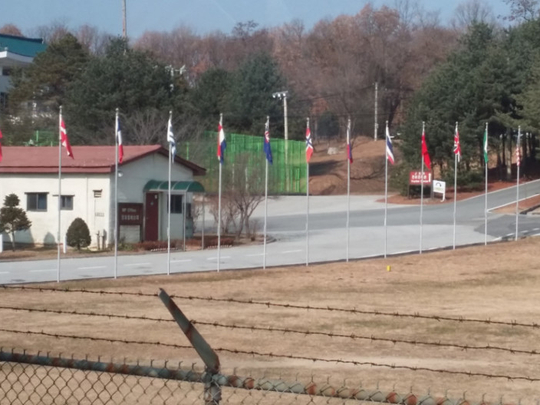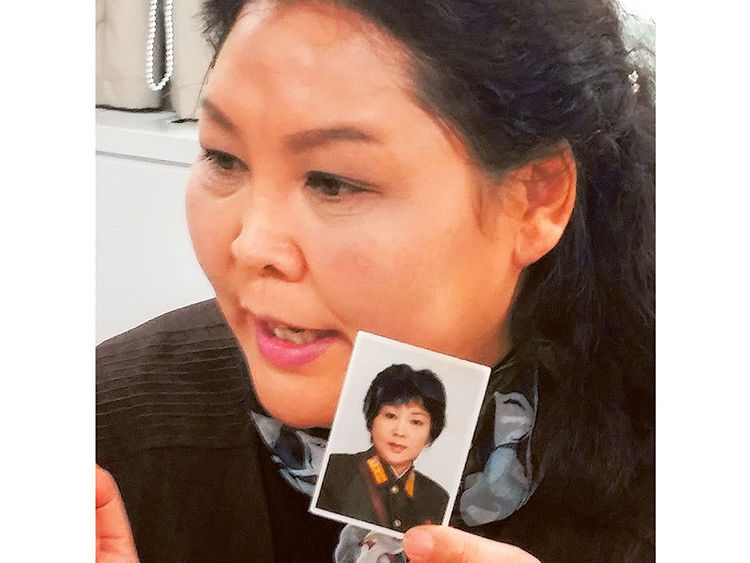
The shattering evidence given by defectors from North Korea brings the desperate conditions north of the border into horrible focus. Three women defectors from North Korea told a group of journalists how they had all left North Korea via China because the border with the South is completely sealed.
Like many of the 27,000 defectors from North Korea who made it to the south, they got into China by either choosing to be sent as part of the sex business, or by bribing the guards if they were able to find the money.
Their stories then included necessarily vague references to NGOs and charities (they did not want to be very obvious about who helped them for fear of reprisals) who met them and provided the essential seed money of around $6,000 (Dh22,020) to make a break from their situations and leave China illegally to get to a South Korean embassy in a third country. From there they were able to travel to Seoul, where the government gave them housing and a small stipend.
Breadline poverty
The three defectors from the North offered a grim insight into how life is so fragile over the border. 80 per cent of the population in not allowed into the capital where the other 20 per cent live protected lives with food and facilities that allow them to both enjoy life and also keep the country going.
The rest live in deep poverty close to the breadline. One 34-year-old defector who had recently escaped from the North and did not want her name used for fear of family members still there being hurt, described how her father literally starved to death in front of her family after the death of Kim Il Sung when all the food in the country went to the army and she and her family had to eke out their lives by eating bark and roots.
A slight woman with a quiet voice, she told of how she was brought up near the border with the south and when she was found selling food she was sent to a labour camp as punishment. About 25 per cent of North Korea’s population is held in these concentration camps and are used as disposable labour for the benefit of the ruling elite.
She was sent to China and had no real intention of defecting, but the opportunity came to run away to Thailand where she turned herself into the South Korean embassy and came to Seoul.
She described the shock at arriving in the South in 2011, when after the government had given her a stipend and housing, her first priorities were to have clothes and something to eat. But then she described how she learnt of the importance of education, which came as a shock, and now she is looking for a career.
Sold into sex trafficking
Lee Soon-sil was a slightly older women who had been a Lieutenant Nurse Officer in the 15th battalion of the North Korean Army for 11 years, but could not survive on her salary and had to beg for food while working in the army.
Between 1994 to 1998 North Korea endured a brutal famine, triggered by economic mismanagement and the ending of the former Soviet support for the regime. In what the regime called the “Arduous March” food production and imports declined drastically, and the centralised government was unable to limit the scale of the disaster in which up to 3 million people may have died of starvation.
Just as this disaster was descending on the country, in 1994 Lee tried to defect to South Korea via China eight times and she only succeeded on the ninth.
During this period she described how the regime punished her using torture with knitting needles, being beaten with hot rods, clubbed, water poured down her throat and boiling water poured over her.
She showed the journalists some of her scars before continuing with her story relating how she was sold into human trafficking for $5 and her daughter went for $3.
Nonetheless, once she reached China she was able to join a group planning to cross the Gobi Desert into Mongolia where she was able to make contact with the South Koreans and come to Seoul.
To this day, Lee has no idea where her daughter is. What makes her grief harder to bear is that Lee knows that she was separated from her daughter when she was too young to remember much. Therefore she is growing up totally unaware of who her mother is and where she might be. Lee does not even know what name her daughter will have been given, making any future effort to trace her very hard indeed.
Relatives in the North
The defectors described how they can keep in touch with their relatives if they live near the border by using the Chinese phone network which leaks through into the sealed North. They also send money via Chinese middlemen who take a large cut as do the border guards who take a bribe, but even so their families are able to use their modest support to improve their daily lives and find food and clothing.













